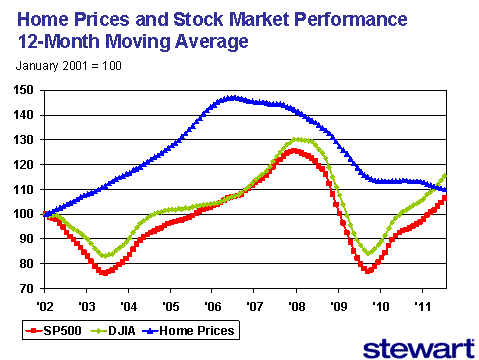Real Estate Investing Offers Equal Performance, Less Volatility Than Stocks
Posted by Monte Davis on
Okay. Let's play show and tell. Have a look at this graph.

What are we seeing? Proof that housing, as an investment, is less volatile than the stock market and highly competitive in terms of performance. Yeah. It jumped out at me, too when I received it this week in an email newsletter.
Here's the scenario. You buy into the SP500 or the Dow Jones Industrial Average OR you pick up a median-priced piece of residential real estate in January 2002.
The SP500 index is 106.4 while housing is 110 and the DIJA is 115.4. Even though housing is currently down 25 percent, it hasn't taken as rough a ride in terms of peaks and valleys as either of the other indices.
And in comparison to the current 25.3 percent drop in housing? From January to…
1623 Views, 3 Comments
